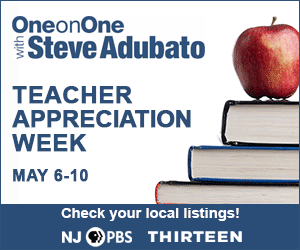(Finally) A Conversation About Racism in America

By George Ball
The death of George Floyd has convulsed this country, prompting many to express their view, in various media outlets, of the societal problems Floyd’s death exemplifies. Those who do so speak of sadness, frustration at a widely perceived lack of racial justice, and an almost universal condemnation of systemic racism.
Often missing from this public discourse is a meaningful “conversation” about race. Which is the conversation we have been promised for decades. Instead, this promise has been diluted into little more than a tagline speakers use to segway to express their own conclusions. Let’s finally have that conversation. And start it by understanding what racism is and isn’t.
We live in the real world. It is often a hard world. Where things are not perfect, and many things are unfair. In that world, most of the progress we have made as people is tied to the basic idea that we are each responsible for our own actions, good and bad. With better outcomes as a society when there is more individual accountability, and worse outcomes when there is less.
This concept is hardly new. It is more elegantly articulated in Judaism’s “Golden Rule” and Christianity’s Sermon on the Mount. We don’t hold the son liable for the sins of the father. He is only accountable for what he does, or fails to do.
Why? Because it helps us live better lives by giving us parameters within which to organize how we treat each other. Individual accountability also suggests a way to define racism that allows us to move forward consistent with how we have best lived together for a long time. That is, a definition that makes sense to us because it actually works.
Defining Racism
When you treat an individual person based not on who they actually are, but instead based upon your perception of the racial group to which they belong, your actions are race-based. And, therefore, racist.
This simple concept is roundly rejected by those who (1) insist racism describes a power relationship, and that minorities (who lack power) cannot be racist, or (2) conceptualize racism not as what an individual person consciously thinks or does, but rather whether s/he “benefits” from prejudice practiced by people generations – or even centuries – removed from 2020.
You can look for statistics or academic works that refute these views. Or you can instead assess them through the prism of what many of us have experienced in our own lives.
A few true, witnessed examples. The well-dressed black man who narrowly misses the car door suddenly opened by a group of white teenagers speeding on Fifth Avenue in New York City, screaming “ni-er” as they passed. The two grown whites males who taunt an elderly black woman on Martin Luther King Day. The black male whom you have never that purposefully goes out of his way to shove an elbow or slam a shoulder into you as you walk on the sidewalk. And the statements by Black Lives Matter advocating a “safe space” in college newspapers where only black students are permitted to publish, or meetings in student unions that only black students can attend.
The situations differ, but the message is always the same. The message is that who you are as a person is less important than how others perceive the group to which you belong.
Is there Racism in the United States?
Of course there is. There are racist men and women, young and old. Racism that extends beyond the killing of George Floyd, Ahmed Aubrey, or the slaughter at the synagogue in Pittsburgh. Racism that results in U. S. Senator Tim Scott getting stopped seven times for being a black man driving a car. Racism that makes a person feel unwelcome in his own community. Like an outsider looking in; a stranger who can be disinvited from the country of his or her birth.
Is there equivalency between black and white racists? Not really. The facts of our own national experience are that while all racists are culpable, blacks plainly have historically suffered, and continue to suffer, from racism far more than whites.
We live here. So none of this is a surprise. The larger point is simple, but important.
Any honest conversation on race is inherently complicated because human beings are complex. And in this society, racism is a difficult issue with few easy answers. Though whites and blacks often face different circumstances, we carry within us the same flaws. Including the tendency to oversimplify, which invites intellectual laziness that can quickly devolve into sloganeering – but rarely (if ever) moves us towards viable solutions.
Is Racism Systemic?
It is difficult to know in this confusing time. What we can say is this. A logical case can be made that racism is not inculcated, supported, and condoned by the larger society acting through its institutions. That is, it is not systemic.
How is this case made? Through history. That is, our story. The story of this country.
Since the criminal justice system is so often being identified as the point of the racism spear, let’s look at it. There are more than 1.2 million police officers in this country. Are any of them racists? Plainly, what happened to George Floyd was appalling. Equally true is that there will inevitably be some number of be racists in any large group of people, including Buddhist Monks (e.g., the plight of Muslim Rohingas, who have been ethnically cleansed from largely Buddhist Mynamar). How many racists? No one can say.
Also consider this. With some very disturbing exceptions, a racist police officer cannot destroy an innocent person based on the color of his or her skin. That racist cop usually needs help, or at least acquiescence, from racist prosecutors, racist judges, and racist juries – who must all happen to live in the same community. Without that, you can’t get a conviction at trial. Can these dominoes line up? Sure. Is it likely to be happening in New York City? Or Los Angeles? Or Atlanta? Or Washington, D.C.? All of which are now on fire.
There was a time in this country when blacks could routinely be excluded from juries, and were effectively prevented from voting for the Mayors, District Attorneys, Sheriffs and local judges who enforced the law. There was a time when it was perfectly acceptable for the prosecutor to urge an all-white jury to “not let Jew money from New York to buy Alabama justice.” That is, during the rape trial of the Scottsboro Boys, whose defense team was funded by the largely Jewish New York City based International Ladies Garment Workers Union. There was a time when black and white troops were legally segregated, along with buses, bathrooms, restaurants, water fountains, schools, motels, neighborhoods and movie theaters. And there was a time when three civil rights workers (Schwerner, Chaney and Goodman) could be taken from their jail cells in Mississippi and murdered in a dark field by white supremacists who reasonably believed that they would not be prosecuted (and, in fact, Mississippi refused to prosecute them). Throughout that time, from which we are now several generations removed, racism was supported by, and part of, our institutions.
Contrast that with the fabric of our society today. A fabric that has woven into it black Sheriffs, Chiefs of Police, District Attorneys, Assistant District Attorneys, Judges, Mayors, Senators, members of Congress, police officers, a former Attorney General and a former President of the United States who was not only elected, but also then re-elected, by a majority of this country. Along with the many federal and state laws prohibiting racial discrimination and subjecting those who practice it with imprisonment, substantial monetary damages, or both.
African Americans plainly are on the wrong end of income inequality and socio-economic disparities. But let’s acknowledge what we have all experienced. Life – real life – the only life that we can actually live, is not a series of absolutes. It is relative. The only way that we can know whether something is better now is by measuring it against what was in the past.
And this real-life measure suggests that racism in the Unites States is not systematic. Our political and civil institutions do not inculcate or protect it. Rather, through the very hard and long struggle of many people, they have become imperfect mechanisms for combating racist behavior. As all mechanisms are imperfect.
What Is the Solution?
We don’t need a precise understanding of what causes racism to formulate steps we can take to meaningfully ameliorate it. In the short-term, there are commonsense things that can, and probably should, be done now to help police do the very hard job of policing better. And no surfeit of good ideas. Or absurdly bad ones, like “defunding” the police, whom we obviously need. As do the protesters, who are being protected as they protest by the very men and women in blue that they are demonstrating against.
But racism is not a short-term problem. Deinstitutionalization may have been the easy part. Because what is left it changing the hearts and minds of individuals, one at a time. That requires sustained, long-term, exhausting dedication and effort. To what end? The goal is to give people the tools to lead successful lives. Because commonsense tells us that very few people actually living successful lives will feel the need as adults to concoct a fictional, race based superiority over others.
We need not detail what this change looks like. A general direction is enough, because it is not a new direction.
Millions of economically and socially deprived children – black and white – now have only the slimmest chance to lead successful lives. First and foremost, we have to feed these children – at school, if needed – with three meals a day, if necessary. We also have to teach them how to cooperate, problem solve, resolve conflicts, communicate, persevere, and overcome. We have to tutor them. And we have to overcome broken or nonexistent support networks by mentoring them, individually, from Kindergarten through High School.
When properly done, this blocking and tackling has successfully empowered children by giving them the tools they need to build their own lives. It is very hard to do. And expensive. And tedious. But possible, if we commit ourselves to doing it.
How Do We Coalesce Around This Task?
Using the power of government to force large people to act against their own interests is ultimately self-defeating. As is embarking on fundamental societal changes without buy in from both sides of the aisle (compare Medicare, which had bipartisan support with Obama care, which was passed on a strictly partisan basis and now functionally no longer exists). In the area of race – and many others – it is time to stop gratuitously defeating ourselves.
If you come to us and say we need to give people who want to earn their success a chance to do so because it is the right thing to do, we are all ears. If you explain to us that teaching others how to fish elevates all boats, and that it is in our personal self-interest (and that of our families) to have a stable society in which everyone has a stake because everyone can earn the opportunity to improve their lives, we are listening intently. If you go on to explain that nothing is free, and that there are communities which, for all kinds of reason – including historical ones – need extra funding for better schools, more subsidized meals, enhanced job training, mentoring, and widely available child and healthcare to get there, many of us can be persuaded to take more of the money that we earned by expending the minutes, hours and days of our lives and invest it in theirs.
But – whatever subconscious biases we may have – most of have never knowingly denied anybody anything on the basis of their skin color. So if you explain to us that we should be required to make all manner of sacrifices to support people we have never met because we benefit unfairly from white privilege (as we are denied job opportunities, and our children are denied educational opportunities, under affirmative action), some of us will stop listening. If you insist that sons and grandsons should pay for the sins of their fathers and grandfathers because many communities used to redline, many of us will close the door. If you tell us that we should pay reparations to people we have never met because while our family was living in poverty in Europe whites now long dead had slaves in America who are also now long dead, most of us will turn out the light.
Why? Because this world view turns accountability on its head. It draws conclusions about us based not on our actions, but on our skin color. It imposes collective responsibility on individuals in some groups, with no accountability for other groups. Otherwise stated, it places the color of a person’s skin above the content of their character.
This is my contribution to the marketplace of ideas. I invite you to participate. If you have a better idea, test it – by sharing it. Talking to each other, instead of at each other, would be a change that we can all benefit from.
George Ball, New Jersey










Leave a Reply